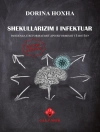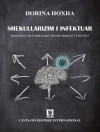If you want to learn to use R for data analysis but aren’t sure how to get started, this practical book will help you find the right path through your data.
Drawing on real-world data to show you how to use different techniques in practice, it helps you progress your programming and statistics knowledge so you can apply the most appropriate tools in your research.
It starts with descriptive statistics and moves through regression to advanced techniques such as structural equation modelling and Bayesian statistics, all with digestible mathematical detail for beginner researchers.
The book:
- Shows you how to use R packages and apply functions, adjusting them to suit different datasets.
- Gives you the tools to try new statistical techniques and empowers you to become confident using them.
- Encourages you to learn by doing when running and adapting the authors’ own code.
- Equips you with solutions to overcome the potential challenges of working with real data that may be messy or imperfect.
Содержание
Chapter 1: Introduction to R
Chapter 2: Importing and working with data in R
Chapter 3: How does R work?
Chapter 4: Data management
Chapter 5: Data visualisation with ggplot2
Chapter 6: Descriptive statistics
Chapter 7: Simple (bivariate) regression
Chapter 8: Multiple linear regression
Chapter 9: Dummy-variable regression
Chapter 10: Moderation/interaction analysis using regression
Chapter 11: Logistic regression
Chapter 12: Multilevel and longitudinal analysis
Chapter 13: Factor analysis
Chapter 14: Structural equation modelling
Chapter 15: Bayesian statistics
Об авторе
Matthias Mittner is a Professor of Cognitive Neuroscience and Head of the Research Group for Cognitive Neuroscience in the Department of Psychology at Ui T — The Arctic University of Norway. His research interests include neuroscience, cognitive psychology and statistical methods. He is the author of several R and Python packages in the field of neuroscience.












